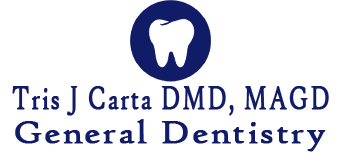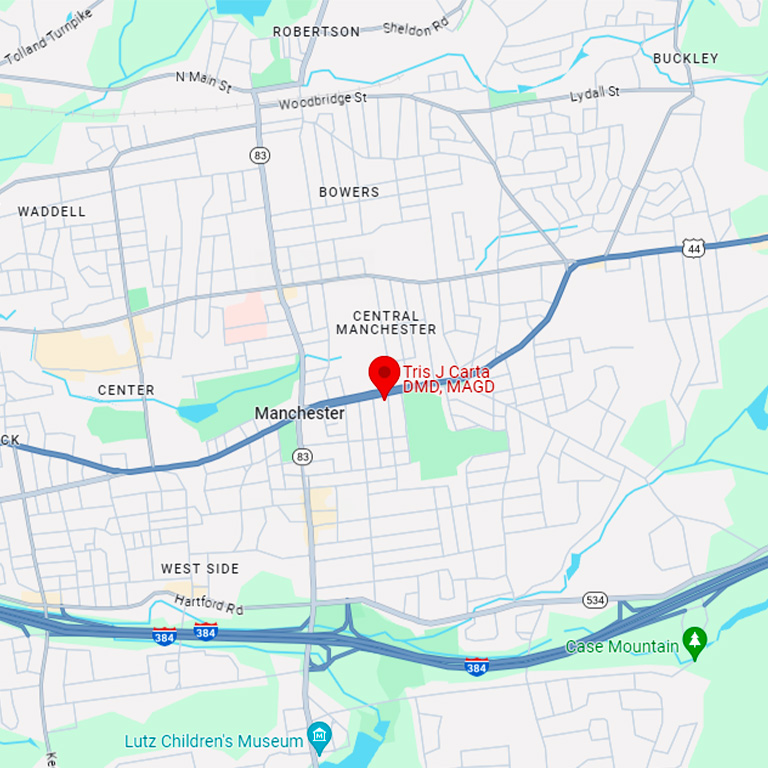TMJ

TMJ disorders (a group of more than 30 different conditions) affect the jaw joints, ligaments, and surrounding muscles. People often mistakenly call these conditions TMJ; however, TMJ is the term for just the jaw joint itself. TMD stands for temporomandibular joint dysfunction. But either way, they are both contributors to an oral disorder.
What Causes TMJ Dysfunctions?
A variety of factors can cause TMJ dysfunctions. For example, bruxism (teeth clenching or grinding), jaw injuries, jaw joint arthritis, stress, or malocclusion (when you have a misaligned bite).
What Are the Symptoms of TMJ Dysfunction?
These are the symptoms to look for to determine if you have a TMJ disorder.
- Toothache or tooth pain
- Tinnitus
- Headaches or migraines
- Jaw pain or stiffness
- Facial pain
- Neck or shoulder pain
- Difficulty opening and closing your mouth
- A change in your bite
- Jaw clicking or popping
How Is a TMJ Disorder Diagnosed?
Your dentist in Manchester, CT, will perform dental and physical exams that include various tests. They will look at your range of motion when you open and close your mouth. They will press on your face to identify any pain or discomfort. They will also feel your jaw joints and how they react when you open and close your mouth.
After that, your dentist will likely perform one or more of the following.
- Dental X-rays
- TMJ arthroscopy
- CT scan
- MRI
Nonsurgical Treatments for TMJ Dysfunction
Your dentist will make a recommendation based on your specific case.
- Mouth guards
- Night guards
- Ultrasound therapy
- Physical therapy
- Transcutaneous electrical nerve stimulation (TENS)
- Trigger point injections
- Behavioral changes
Surgical Treatments for TMJ Dysfunction
Your dentist will let you know if they recommend surgery based on your specific case.
- TMJ arthroscopy
- Arthrocentesis
- Open joint surgery
Do You Need a Dentist in Manchester, CT?
Leaving your TMJ disorder untreated can result in expensive dental restoration procedures. Contact Tris J Carta DMD, MAGD General Dentistry today. We will diagnose the extent of your TMJ disorder and provide easy solutions to help get your life back to normal. TMJ disorders can usually be cured with the proper treatment.

